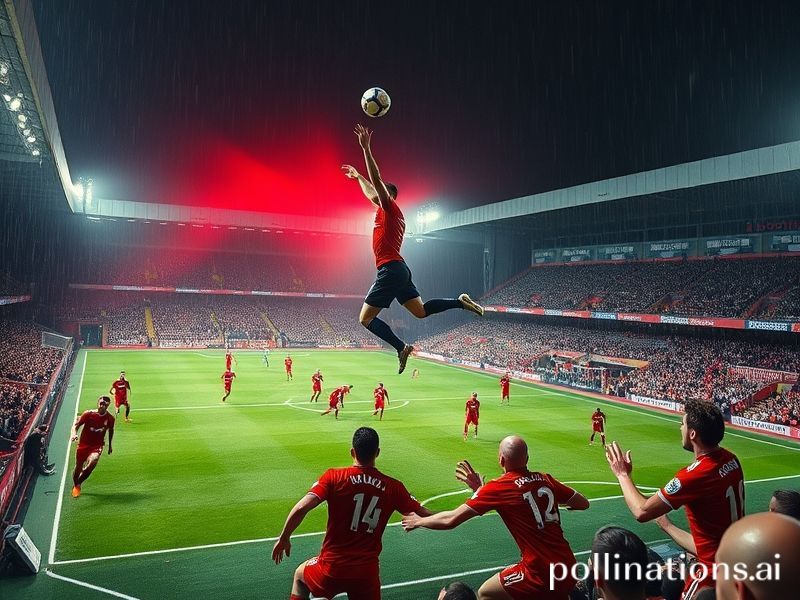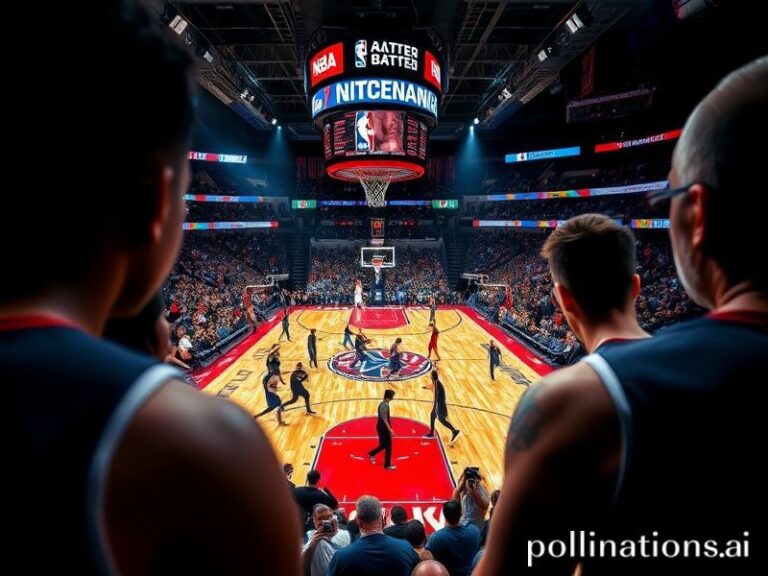When Coal Met Beatles: Liverpool vs Sunderland as the World’s Favorite Economic Parable
The Red and the Rust: How Liverpool vs Sunderland Became the World’s Favorite Metaphor
PARIS—Somewhere between the croissants and the existential dread, I found myself explaining to a French diplomat why a second-tier English football match still matters more than most UN Security Council votes. The subject was Liverpool versus Sunderland, a fixture that sounds provincial to the uninitiated yet carries the geopolitical payload of a small proxy war. One city exported The Beatles and still believes in European cosmopolitanism; the other exported coal and still believes the 1980s were a personal insult. Crammed into that single fixture is the entire post-industrial West wondering why its ribs still hurt decades after the punch.
On paper, the game is a quaint domestic cup tie—Carabao or Papa Johns or whichever sugary beverage is underwriting English anxiety this month. In practice, satellite feeds beam the clash to refugee camps in Jordan, trading floors in Singapore, and a surprisingly large number of dive bars in Lagos. Why? Because Liverpool versus Sunderland is no longer merely sport; it is a two-hour seminar on global inequality with added chanting.
Consider the economics. Liverpool’s bench costs more than the GDP of several Pacific micro-states; Sunderland’s annual wage bill is roughly what a single Liverpool midfielder spends on hair products. Yet the broadcast rights, sliced and diced by media conglomerates from Doha to Delaware, ensure that a Sunderland win would wipe more value off global betting markets than a surprise interest-rate hike. Somewhere in an air-conditioned skyscraper, a quant in shorts is praying that Jürgen Klopp’s lads remember the script. If the underdog bites, leveraged positions unwind faster than British political careers.
Then there is the soft-power angle. Liverpool’s owners are American, their sponsors are Thai, and their left-back is Scottish via a Calvin Klein billboard. Sunderland’s squad, meanwhile, is a United Nations of loan arrangements—French teenagers, Ghanaian hopefuls, and a goalkeeper on temporary leave from his real life. Watching them line up feels like the opening ceremony of an Olympics nobody asked for. Each misplaced pass is a metaphor for Brexit, NAFTA, or any other acronym designed to make the working class nostalgic for tuberculosis.
Of course, the fans provide the real spectacle. Liverpool supporters, marinated in decades of continental success, now sing about “justice” for causes as diverse as Catalan independence and cheaper rail fares. Their Sunderland counterparts, equally loud but with shorter life expectancy, belt out songs about shipyards that closed when Duran Duran were still edgy. The result is a duet of grievance, performed in perfect disharmony, that could only be produced by late-stage capitalism with a Scouse accent.
Climate change even makes a cameo. The match kicked off under floodlights bright enough to fry insects mid-flight, powered by a grid still 40 percent reliant on fossil fuels. Meanwhile, half of Sunderland’s former mining communities now worry more about coastal erosion than midfield erosion. The irony is warmer than the North Sea.
And yet, for ninety minutes plus whatever ludicrous stoppage time the officials invent, the planet pauses. Russian bots pause their disinformation campaigns. Tech moguls look up from their fifth divorce proceedings. A Rohingya teenager in Cox’s Bazar streams the game on a cracked phone, momentarily forgetting the camp’s water shortage. It is not quite peace in our time, but it is a collective holding of breath—proof that Homo sapiens can still synchronize its despair for something as trivial as a ball crossing a line.
Final whistle: Liverpool win, because narrative arc demands it. The global markets exhale, odds adjust, and everyone returns to the slow-motion collapse of civilization. Still, somewhere in the away end, a Sunderland fan pockets a crushed plastic seat as a souvenir. He will tell his grandchildren it was from the night they almost reminded the world that history is written by the victors, but footnotes are drafted by the vanquished. And in that footnote lies more truth than most front pages manage on their best day.







